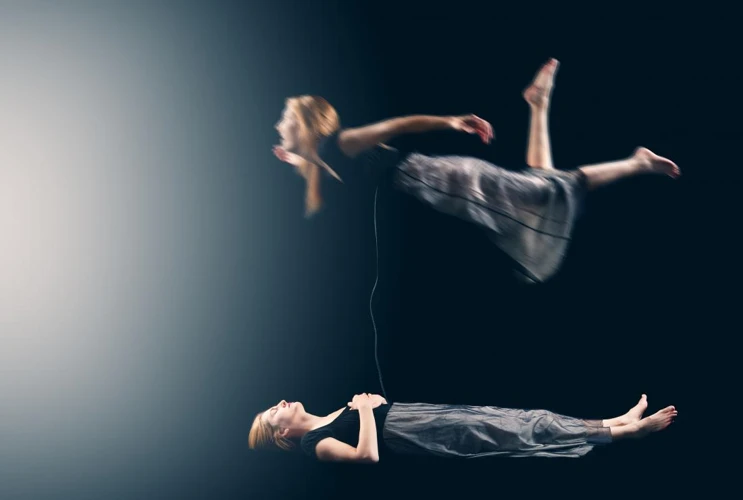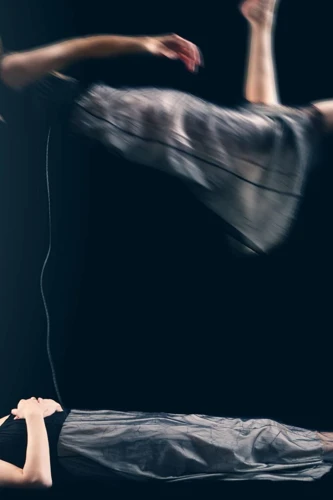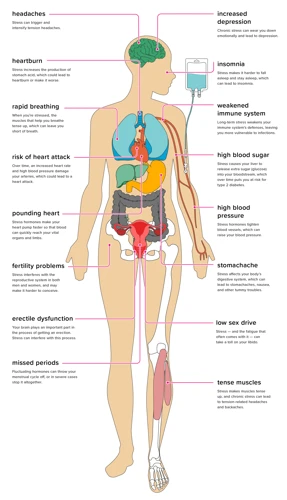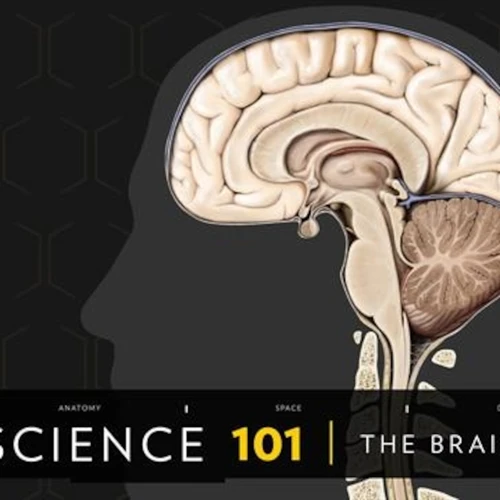Have you ever felt like you were outside of your physical body, floating and observing the world from a different perspective? This surreal experience is commonly known as an Out of Body Experience (OBE), and it has puzzled both scientists and spiritualists for centuries. By carefully understanding the stages of an OBE, the theories behind this phenomenon, and how it affects both the mind and body, we can explore the mystery and complexity of this fascinating occurrence. Join me on a journey to uncover the secrets of OBEs and how you can potentially induce one yourself.
What is an Out of Body Experience?

OBE – Defining the Phenomenon
An Out of Body Experience (OBE) is a fascinating psychological phenomenon that has sparked the curiosity of many people for centuries. It is a state of mind where a person finds themselves feeling detached from their physical body and can experience the world around them from a different perspective.
This feeling of detachment from the physical body can be quite disorienting at first and lead to a sense of confusion. However, with time and practice, individuals can learn to control and navigate through this experience.
Types of OBEs
There are different types of Out of Body Experiences, which can be classified into two broad categories; spontaneous OBEs and induced OBEs.
Spontaneous OBEs usually occur without any deliberate effort on the part of the individual. They are often caused by situations such as near-death experiences, trauma, or medical procedures such as anesthesia. Induced OBEs, on the other hand, are triggered by a conscious effort on the part of the individual.
These can be achieved through meditation, lucid dreaming, or the use of psychoactive drugs. Induced OBEs may be easier to control and navigate compared to spontaneous OBEs, which can be overwhelming due to the sudden nature of their occurrence.
Understanding the different types of OBEs can help individuals prepare for their experience and manage their expectations.
Defining OBE
When we hear the phrase “out of body experience,” it can be difficult to imagine what that really means. The concept is both fascinating and mysterious, shrouded in intrigue like so many other aspects of human consciousness. But what exactly is an out of body experience? How can we define this elusive phenomenon so that we can attempt to better understand it? Let’s delve into some of the key features that make up an out of body experience and see if we can bring more clarity to this intriguing topic.
Types of OBE
There are different types of out of body experiences, each with their unique features and characteristics. Here are some of the most commonly known types of OBE:
- Spontaneous OBE: This type of OBE occurs suddenly and without any conscious effort. It is usually unexpected and may happen while a person is engaged in a normal activity or when they are asleep.
- Induced OBE: An induced OBE is one that is deliberately initiated. This can be done through techniques such as meditation, hypnosis, or self-hypnosis.
- Near-death Experience (NDE): NDEs can also be considered as a type of OBE. They usually occur when a person is clinically dead or close to death. During an NDE, a person may feel like they are outside their body and observe their surroundings from a different perspective.
- Remote Viewing: This is a type of OBE in which a person can observe a distant location without being physically present at the location. Remote viewing is often associated with psychic abilities.
- Lucid Dreaming: Although not considered a true OBE, lucid dreaming can be described as a similar experience since it involves a heightened state of consciousness and a sense of detachment from the physical body.
Understanding the different types of OBE can help individuals identify and distinguish their experiences. It is worth noting that some people may experience a combination of these types of OBE.
Stages of an Out of Body Experience

During an out of body experience (OBE), individuals typically go through three distinct stages. These stages are characterized by a sense of separation from their physical bodies, exploring the environment outside of their bodies, and finally returning back to their physical bodies.
Stage 1 – Separation: The first stage of an OBE is the separation stage. During this stage, individuals often report feeling a sensation of floating outside of their body, or even seeing their physical body from an outside perspective. This separation can be a gradual or sudden process and may be accompanied by physical sensations such as vibrations, sounds, or a feeling of lightness.
Stage 2 – Exploring: In the exploring stage, individuals who have achieved separation from their physical body have the opportunity to explore their surroundings. This exploration can take on many forms and can be a uniquely personal experience. Some individuals report traveling to different locations, others describe flying or floating, and some experience a sensation of being in a different realm altogether. The exploring stage can be accompanied by a profound sense of freedom, heightened sensory awareness, and a feeling of connectedness to surrounding objects and entities.
Stage 3 – Returning: The returning stage marks the final stage of an OBE. During this stage, individuals begin to recognize that their experience is coming to an end, and they gradually transition back into their physical bodies. This transition can be accompanied by a sense of heaviness, as well as physical sensations such as tingling or chills. The duration of the returning stage can vary from person to person and may be influenced by individual factors such as stress levels or physical health.
The stages of an out of body experience can be a profound and life-changing experience for those who experience them. While some individuals may only have one OBE in their lifetime, others may seek out ways to induce these experiences and explore the mysteries of consciousness and the universe beyond our physical bodies.
Stage 1 – Separation
The first stage of an out of body experience is an intriguing and perplexing event that many people have described experiencing. During this phase, the individual becomes keenly aware of a separation between their body and their spirit or consciousness. This separation can happen spontaneously or be induced through intentional practices, and it is often accompanied by unusual sensations and perceptions. The feelings and sensations of this stage are difficult to describe with detail, but they are often described as a sense of floating or drifting away from the physical body. Let’s explore the first stage of an out of body experience in more depth.
Stage 2 – Exploring
During Stage 2 – Exploring, the individual experiences a sense of freedom and a range of wondrous sensations. This is often described as a voyage or an adventure. They may feel weightless, as if they are floating or gliding effortlessly through the air. The environment may seem ethereal or surreal, with colors that are more vivid and a landscape that can be otherworldly.
It is during this stage that the person can move around and explore their surroundings. This can be both a conscious and subconscious exploration, as the individual may not have full control over their movements or the direction of their journey. Some people have reported experiencing a sense of oneness with everything around them, which can be both exhilarating and overwhelming.
To better understand this stage, an OBE Exploring Experience Table can help to illustrate the various sensations and experiences that occur:
| Sensation/Experience | Description |
|---|---|
| Weightlessness | The feeling of being light and unencumbered, as if floating or gliding. |
| Otherworldly environment | A surreal or ethereal landscape, with colors that are more vivid. |
| Subconscious exploration | The sense of exploring the environment both consciously and subconsciously. |
| Sense of oneness | A feeling of being connected to everything around them, which can be both exhilarating and overwhelming. |
It is important to note that not everyone’s experience during Stage 2 – Exploring will be the same. Some may experience more vivid sensations, while others may have a more subdued experience. However, one thing that is common across all experiences is the sense of awe and wonder that comes with the exploration of the unknown.
Stage 3 – Returning
As the OBE draw to a close, the person will eventually begin to return to their physical body. This stage is known as Returning. During this stage, the individual begins to move back towards their body, and may feel a sense of pressure or magnetism pulling them towards it. This is often accompanied by a feeling of heaviness, or a sense of being anchored to the physical world.
There are several theories as to what may cause this sensation of returning to the body. Some scientists believe that it may be related to changes in brain activity, as the brain begins to reorient itself towards the physical body. Others believe that it may be related to changes in the body’s energy fields, which begin to draw the individual back towards their physical form.
Regardless of the cause, the process of returning to the body can be a gradual one. For some individuals, it may happen almost instantaneously, while for others, it may take several minutes or even hours. During this time, the person may experience a range of sensations, including tingling, numbness, or a sense of disorientation.
Once the person has fully returned to their body, they may experience a range of after-effects. Some individuals report feeling energized and invigorated, while others may feel exhausted or disoriented. It is also common for individuals to have vivid memories of their OBE, and to feel a sense of awe and wonder about the experience they have just undergone.
The process of returning to the body is an important part of the OBE experience, and can provide valuable insights into the nature of consciousness and the human mind. While it can be a challenging and disorienting experience, it can also be deeply rewarding and transformative for those who are willing to explore it.
Theories on OBEs

Out of body experiences, or OBEs, have been recorded throughout history, and the phenomenon has inspired numerous theories as to their cause and meaning. Theories on OBEs fall into two main categories: neurological explanations and spiritual explanations.
Neurological Explanations: Many scientists believe that OBEs are simply a result of complex interactions between the brain and body. One popular theory is that they occur when the brain’s temporal lobe becomes overactive. This can lead to distortions in perception, including the feeling of separation from the body. Other theories suggest that OBEs are the result of disruptions in specific areas of the brain responsible for our sense of self and spatial awareness.
Spiritual Explanations: On the other side of the coin, some explanations for OBEs are rooted in spiritual or religious beliefs. Many people who have experienced OBEs report encountering divine beings, mystical creatures, or deceased loved ones. Some believe that OBEs are a sign of the soul leaving the body and entering another dimension or realm. Others view them as evidence of an afterlife, or a higher spiritual reality beyond our physical world.
Despite these theories, the exact cause and nature of OBEs remains a mystery. However, the phenomenon is well-documented and has been experienced by people of all ages, cultures, and backgrounds. Ultimately, whether you view OBEs as a product of the mind, spirit, or something else entirely, the experience can be both fascinating and transformative.
Neurological Explanations
As researchers dive deeper into the phenomenon of out of body experiences, many have turned to the complex workings of the brain to understand what might be happening. Neurological explanations suggest that OBEs could be a result of various changes in the brain, from the stimulation of certain areas to the release of neurotransmitters. While these findings can help to explain some aspects of OBEs, there is still much to uncover about the relationship between the brain and the mind during this surreal experience. Let’s explore some of the theories surrounding neurological explanations for OBEs.
Spiritual Explanations
It is important to note that spiritual beliefs and experiences play a significant role in the explanation of OBEs for many individuals. These spiritual explanations often involve the concept of the soul or consciousness leaving the body and entering a different realm of existence. The following are some examples of spiritual explanations for OBEs:
- Astral Projection: This explanation involves the belief that the soul or consciousness can leave the physical body and enter into a different dimension or plane of existence. It is also referred to as “astral travel” and is believed to give individuals access to other worlds or even afterlife realms.
- Higher Consciousness: Some individuals believe that the out of body experience is a manifestation of a higher state of consciousness. It is seen as a way to transcend the material world and reach a heightened level of awareness or enlightenment.
- Existence of Multiple Realms: This explanation suggests that there are multiple realms or dimensions of existence and during an OBE, an individual’s consciousness may leave their physical body and enter into a different realm of existence.
- Soul Leaving the Body: Some individuals believe that during an OBE, the soul is temporarily disconnected from the physical body and has the ability to travel freely in the spiritual realm.
While spiritual explanations for OBEs are not scientifically proven, they are still very important to many individuals as they provide a sense of meaning and understanding to their experiences. Whether or not one subscribes to these beliefs, it is important to respect individual differences and perspectives when it comes to OBEs.
What Happens to Your Body?

During an out of body experience, there are certain changes that occur within the body that are worth examining. The experience itself can lead to a range of physiological responses that can be both fascinating and a cause for concern.
Brain Activity during OBEs: Studies have shown that the brain is incredibly active during an OBE. In fact, certain areas of the brain that are normally in a state of rest or inactivity become activated. There is increased blood flow to the parietal cortex, which is responsible for integrating sensory information, and the temporal cortex, which controls memory and emotional responses. This increase in activity reflects the intense sensory experiences that occur during an OBE.
Physiological Changes in the Body: There are a number of physiological changes that occur during an OBE, including changes in heart rate, blood pressure, and breathing. Some individuals may experience an increase in heart rate, while others may experience a decrease. Blood pressure may also fluctuate, leading to feelings of lightheadedness or dizziness. Breathing may become labored, as the body shifts into a state of heightened arousal.
Other physiological changes that may occur during an OBE include changes in body temperature, muscle tension, and digestive functions. Some individuals may experience a feeling of weightlessness or a sensation of floating, which may be linked to changes in the vestibular system, which regulates balance and spatial orientation.
While an OBE can be a fascinating and transformative experience, it is important to be aware of the potential physiological changes that can occur. It is essential to consult with a medical professional prior to attempting to induce an OBE, especially if you have a preexisting medical condition. Additionally, individuals who have experienced trauma or have a history of mental health problems should exercise caution when attempting to induce an OBE, as the experience can be intense and potentially triggering.
Brain Activity during OBEs
As fascinating as it may sound, the brain activity during an out of body experience is still a puzzle that scientists are trying to piece together. While there have been some studies carried out to understand the neurological aspects of OBEs, the exact brain mechanisms that trigger such experiences remain enigmatic. The phenomenon of detaching oneself from the physical body and experiencing a different plane of reality is yet to be fully comprehended. However, researchers have discovered some intriguing findings that could potentially shed light on what goes on in the brain during OBEs. Let’s delve into those findings in more detail.
Physiological Changes in the Body
During an Out of Body Experience, physiological changes occur in the body which can be measured by scientific instruments. The physical body is still present during an OBE, but is in a state of deep relaxation while the consciousness has separated from it. Here are some of the physiological changes that have been noted during an Out of Body Experience:
- Decreased brain activity: Studies have shown that there is a decrease in brain activity during an OBE. This is due to the fact that the brain is not receiving external stimuli, such as those received through the senses, and is therefore not as active as it would be during normal waking consciousness.
- Changes in heart rate and breathing: During an OBE, the heart rate and breathing rate can slow down. This is due to the deep relaxation state that the body is in. It is also possible for the heart rate and breathing to speed up during an OBE, which can happen when the experience is particularly intense or emotional.
- Alterations in blood pressure: Blood pressure can fluctuate during an OBE. This is due to the fact that the body is in a relaxed state and the blood vessels can dilate, leading to a drop in blood pressure. This can result in feelings of dizziness or light-headedness.
- Changes in body temperature: During an OBE, the body temperature can change. This can be due to the changes in blood pressure or due to the fact that the body is in a state of deep relaxation. Some people report feeling warm or hot during an OBE, while others report feeling cold or cool.
- Muscle relaxation: During an OBE, the muscles in the body can become very relaxed. This is due to the deep relaxation state that the body is in. This relaxation can be beneficial for people who suffer from muscle tension or pain.
It is important to note that not all of these physiological changes may occur during an Out of Body Experience. Different individuals may experience different physical sensations during an OBE depending on their own physical and emotional state. However, monitoring the physiological changes that take place during an OBE can help researchers better understand this phenomenon and its effects on the body.
What Happens to Your Mind?

During an Out of Body Experience (OBE), there can be a significant impact on the mind as well as the body. Perception during OBEs can be quite different from the normal waking state as individuals find themselves exploring a new realm without the physical body.
During an OBE, individuals often report a heightened sense of awareness and perception. They may experience enhanced visual clarity, vivid colors, and an increased sense of depth perception. In some cases, individuals may even perceive their surroundings from a 360-degree viewpoint.
The experience of an OBE can also lead to altered states of mind. Many individuals report feeling a sense of peace, unity, and interconnectedness during the experience. Some even report meeting spiritual beings or deceased loved ones.
Additionally, some individuals have reported experiencing a sense of timelessness during the OBE. They may feel that minutes or hours have elapsed, but in reality, only a few moments have passed. This can be due to the fact that the mind is no longer tethered to the physical body and its limitations.
Some individuals report that OBEs have led to positive changes in their lives, including increased empathy, compassion, and a deeper sense of purpose. However, it’s important to note that OBEs can also be overwhelming, and individuals may experience fear or confusion during the experience.
An OBE can have a significant impact on the mind, leading to altered states of perception and consciousness. While the experience can be positive and transformative, it’s important to approach it with caution and respect, as it can also be overwhelming and disorienting.
Perception during OBEs
One of the most intriguing aspects of an Out of Body Experience is the unique perception that comes with it. When the mind has separated from the physical body, our senses can become enhanced or altered, leading to a truly surreal experience. The perceptions during an OBE can range from a feeling of immense freedom to complete detachment from the physical world. Let’s explore these perceptions in more detail.
Altered States of Mind
During an out of body experience (OBE), the mind undergoes a range of altered states of consciousness. These states can be described as a detachment from sensory awareness and a shift to a more intuitive mode of consciousness. Here are some of the most commonly experienced altered states during an OBE:
| Altered State | Description |
|---|---|
| Expanded Awareness | During an OBE, some individuals report a heightened sense of awareness and a greater understanding of their surroundings. This state can lead to insights and discoveries that may not have been possible with normal sensory awareness. |
| Timelessness | Many people describe feeling as though time has become non-existent or a very fluid concept, during an OBE. In other words, time seems to be moving slowly or quickly or is entirely irrelevant, causing the person to feel “outside” of time. |
| Loss of Ego Identity | During an OBE, the individual may experience a loss of ego identity, resulting in a sense of unity with the rest of the universe. This is often referred to as the “oceanic feeling” and can be a very profound experience. |
| Visual and Sensory Distortion | Visual and sensory distortion is common during an OBE. The individual may see, hear, or feel things that are not normally perceived or experience sensory input in a different way. This can be a fascinating and transformative experience for some, while for others it may be frightening or overwhelming. |
| Increased Creativity | Many people report that they are more creative while in an OBE. It is said to be an incredibly imaginative state of mind, where one can experience heightened creativity, inspiration and flashes of insight. |
These altered states of consciousness can be difficult to describe to those who have never experienced an OBE. Some individuals find the experience enlightening and transformative, while others may find it confusing or frightening. It is important to approach the experience with an open mind and to allow oneself to fully experience the shifts in consciousness that may occur.
Benefits and Risks of OBEs

Out of Body Experiences (OBEs) have been a topic of debate for many years. While some people claim to have positive experiences during an OBE, others may experience negative effects.
Benefits:
One of the main benefits of an OBE is a feeling of spiritual connection. During an OBE, people have reported feeling a sense of peace and freedom. Some have even reported gaining greater insight into their lives and the world around them. Others have reported having greater intuition and psychic abilities after an OBE.
Another benefit is the potential for healing. People have reported experiencing relief from chronic pain and emotional distress after an OBE. Additionally, some practitioners believe that OBEs can help to remove emotional blocks and promote personal growth.
Risks:
There are also some risks associated with OBEs. One of the most significant risks is the potential for physical harm. People who have experienced an OBE report feeling disoriented and unable to control their movements, which can put them at risk for accidents or injuries.
Additionally, some people report feeling overwhelmed or frightened during an OBE, which can lead to psychological distress. Others have reported feeling disconnected from their bodies or experiencing a sense of loss of control, which can be frightening or disorienting.
There is also a risk of developing an addiction to OBEs. Some people become so addicted to the feeling of detachment that they seek out OBEs more frequently, which can negatively impact their physical and mental health.
It is important to note that the risks and benefits of OBEs vary from person to person. Some people may experience only positive effects, while others may experience negative effects. It is important to approach OBEs with caution and to seek the guidance of a professional if you are concerned about the potential risks or benefits of this experience.
Benefits
Undoubtedly, the idea of experiencing an out of body experience can be both intriguing and intimidating. However, despite the potential risks, many individuals have reported significant benefits from having an OBE. These benefits can range from a deeper understanding of oneself to a heightened sense of spirituality. Studies have suggested that OBEs can help individuals overcome their fears, enhance their creativity, and improve their cognitive functioning. In this section, we will explore some of the most prominent benefits of an OBE and how they can potentially change one’s life.
Risks
While Out of Body Experiences (OBEs) can offer a unique and profound perspective on the self and the universe, there are also potential risks to take into consideration. It’s important to approach these experiences with caution and a clear understanding of the potential consequences.
Psychological Risks
One of the primary risks associated with OBEs is the potential for psychological distress. Some individuals may report feeling disoriented, confused, or even terrified by the experience. This can lead to temporary, but nonetheless distressing, psychological effects such as anxiety, depression, or post-traumatic stress disorder (PTSD). In some cases, people may even develop a dependence on OBEs, feeling compelled to seek out the experience repeatedly.
Physical Risks
There are also potential physical risks associated with OBEs. During an OBE, the body is technically in a vulnerable state, as it is disconnected from the mind and its normal functions. As a result, practitioners may experience increased susceptibility to physical dangers such as injury, accidents, or even heart attacks.
Realism Risks
There is also a risk that some individuals may confuse their OBEs with reality, leading to problems with decision making, relationships, or simply functioning in everyday life. This can be particularly challenging for individuals who already struggle with distinguishing reality from fantasy or who are dealing with mental health issues such as dissociative disorders.
Dependence Risks
Lastly, as mentioned earlier, there is also the risk of developing a dependence on OBEs. Some people may become addicted to the feeling of leaving their physical bodies and use it as a form of escapism. This can lead to a disconnection from reality and a decrease in overall satisfaction with life.
Ultimately, while there is no denying the potential benefits of OBEs, it is important to approach them with a well-informed and cautious mindset. It’s crucial to weigh the potential risks against the rewards and proceed with care.
How to Induce an Out of Body Experience
Inducing an out of body experience can be a unique and exciting experience that can be achieved through various techniques. While not everyone may have an OBE, with practice and mindfulness, one can increase their chances of having such an experience.
Lucid Dreaming
One technique to induce an OBE is through lucid dreaming. Lucid dreaming is the conscious awareness of dreaming, where the dreamer can control their actions within the dream. This can be achieved through reality checks during the day, such as counting fingers or looking at a clock periodically, and asking oneself if one is dreaming. Lucid dreamers may then try to leave their physical body within the dream and enter an OBE.
Meditation
Meditation is another technique to help induce an OBE. By achieving a relaxed and focused state, the mind becomes more receptive and open to the potential for an OBE. During meditation, one can focus on the intention of having an OBE, visualize leaving the physical body, and allow the mind to drift into a detached state.
Sensory Deprivation
Another technique to induce an OBE is through sensory deprivation. By removing external stimuli, such as sight or sound, the mind can enter a altered state of consciousness, allowing for potential OBEs. This can be achieved through the use of float tanks, meditation chambers, or by simply being in a quiet, dark space.
Binaural Beats
Binaural beats is a technique that involves listening to specific frequencies that can affect brainwaves, leading to altered states of consciousness. By combining binaural beats with an intention to have an OBE, one can increase the chances of achieving an OBE.
Other Techniques
Other techniques that can be used to induce an OBE include visualization, astral projection, and sleep deprivation. It is important to note that inducing an OBE can take time and patience, and may not be achieved on the first attempt. It is also recommended to have a clear intention and understanding of the experience, as well as a plan for returning to the physical body.
Inducing an OBE can be a unique and exciting experience that can be achieved through various techniques. While it may take time and patience, practicing mindfulness and these techniques can increase the chances of having an OBE.
Techniques to Try
If you’re interested in inducing an out of body experience (OBE), there are several techniques that you can try. It’s important to note that not everyone is able to have an OBE, and attempting to induce one can be risky for some individuals, so it’s always best to proceed with caution and under the guidance of a trusted professional.
Meditation: Practicing meditation regularly can help prepare your mind for an OBE. It can help increase your focus, relaxation, and awareness, which can make it easier to enter the necessary state of consciousness.
Lucid Dreaming: Lucid dreaming is the ability to become aware that you’re dreaming while you’re still in the dream state. This can be a good step towards inducing an OBE, as it allows you to control your dreams and become more comfortable with the idea of leaving your body.
Sensory Deprivation: Sensory deprivation involves creating an environment without any external stimuli, such as sound, light or touch. This can be done in a floatation tank or in a quiet, dark room. The goal is to create a sense of calm and relaxation which can prepare you to separate from your body.
Binaural Beats: Binaural beats are audio tracks that play two different frequencies in each ear, creating a third frequency in the brain that can induce a meditative state. Some people find that using binaural beats while practicing meditation or before going to sleep can help induce an OBE.
Wake-Back-to-Bed Technique: This technique involves setting an alarm to wake up after several hours of sleep, staying awake for a short period of time, and then going back to sleep with the intention of having an OBE. This technique works by disrupting your sleep cycle, making it more likely for you to enter a lucid dream state, and eventually an OBE.
Visualization: Visualization involves picturing yourself leaving your body or floating outside it. This can be done in conjunction with meditation or before going to bed, and can help prepare your mind for an OBE.
It’s important to note that inducing an OBE can be difficult and take practice. Some people may find it easier than others, and for some, it may not be possible at all. It’s also important to be aware of the potential risks involved, including feelings of disorientation or fear upon returning to the body. Always approach OBE techniques with caution and under the guidance of a trusted professional.
Conclusion
After exploring the intricacies of out of body experiences, it is safe to say that the phenomenon is still shrouded in mystery. While some theories suggest that OBEs are strictly a result of neurological functions, others believe that spirituality plays a significant role in inducing such an experience.
Despite the uncertainty surrounding these experiences, they still hold a significant fascination for many people. Whether you are hoping to have an OBE yourself or are simply intrigued by the topic, it is vital to understand the benefits and risks associated with these experiences. It’s always important to approach such experiences with caution and take steps to minimize any potential harm.
While inducing an OBE might seem tempting, it is imperative to remember that the process can be incredibly challenging, and there is always a risk that something could go wrong. Some people might feel out of control during the experience, or it could last for longer than they anticipate.
It’s essential to remember that an out of body experience might not be for everyone. If you do decide to try and induce one, be sure to do so with an open mind but a healthy amount of skepticism as well. With proper preparation and research, you can take steps to ensure your safety and enhance your overall experience.
In conclusion, out of body experiences are fascinating, elusive experiences that have captivated our imagination and curiosity for centuries. While much remains unknown about the underlying mechanisms of these experiences, we can still learn a great deal from those who have experienced them for themselves. Whether you view OBEs as purely biological phenomena or believe in the spiritual significance they hold, one thing is clear: these experiences have the power to change the way we view ourselves and the world around us.
Frequently Asked Questions
Can anyone have an out of body experience?
It is believed that anyone can have an out of body experience, although some people may be more prone to them than others.
Is an out of body experience the same as a lucid dream?
No, an out of body experience is distinct from a lucid dream, although they share some similarities.
Are out of body experiences dangerous?
There is no evidence to suggest that out of body experiences are inherently dangerous, but it is important to approach them with caution and follow safety guidelines.
Can drugs or alcohol induce an out of body experience?
Some drugs or alcohol may alter consciousness in a way that can lead to out of body experiences, but this is not a recommended or safe method to induce one.
Can an out of body experience be scientifically measured?
There is ongoing research into the scientific measurements and explanations of out of body experiences, but currently there are no standardized methods of measurement.
Is there a spiritual or religious aspect to out of body experiences?
Many people report spiritual or religious experiences during out of body experiences, but there is no consensus on the meaning or cause of these experiences within the scientific or religious communities.
Can out of body experiences be learned or practiced?
Some people believe that out of body experiences can be learned or practiced, although this is not universally accepted or scientifically proven.
Do all out of body experiences feel the same?
No, out of body experiences can vary greatly in intensity, duration, and the sensations experienced.
Do out of body experiences have any real-life applications?
There is ongoing research into the potential practical applications of out of body experiences, such as in training for emergency responders or parapsychological investigations.
Do out of body experiences have any cultural significance?
Out of body experiences have been reported in many cultures throughout history, and may have cultural, religious, or spiritual significance for some individuals or groups.








